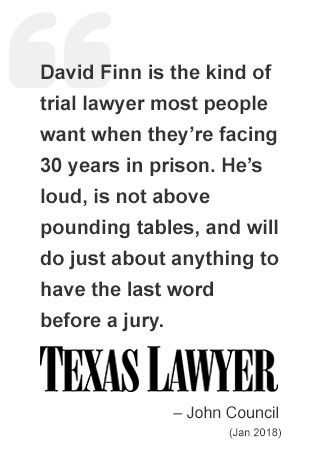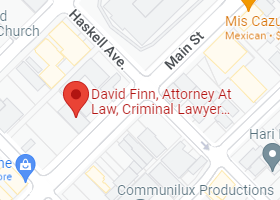


Judge Finn Helps Mentally Ill Offenders and Families
Unique Court Helps Mentally Ill Offenders
09-2001, Texas Bar Journal
Every other Friday afternoon, Judge David Finn’s County Criminal Court 10 in Dallas takes on a different look. During sentencing hearings, the judge leaves the bench for a face-to-face conversation with a defendant and his or her family and friends. Joining them are an assistant district attorney, a social worker, a probation officer, mental health professionals, and Laurel Arnold Clement, an attorney who is also a professional counselor.
This is the newly established Mental Health Court, and everyone is there to discuss how the defendant, who has committed a criminal offense and has mental health issues, can get help and not become a repeat offender. The solution may be probation with conditions like taking prescribed medication, attending peer counseling (which Finn monitors every other week), or submitting to random drug testing. When a consensus is reached, Finn returns to the bench and enters a judgment.
Judge Finn says he sees the same people with mental retardation or mental illness, brought before his court again and again. “There is a recurrence of assaults because offenders get off medications,” said Finn, “and there is a lack of coordination among the various providers who could help.”
Clement encounters persons with mental illness or mental retardation who committed infractions in her therapy practice as well as her law practice. She had heard about mental health court pilot projects in other states, and proposed the idea to Judge Finn. They held the first mental health court session on May 4.
“Laurel is the engine behind this,” said Finn. “She is the coordinator and the liaison to mental health resources.
Clement is in constant contact with Judge Finn’s office and coordinates the meeting at court of defendants’ families, mental health providers, and criminal justice personnel. “This court is an opportunity to come together and find a solution with which everyone is comfortable,” says Clement.
More than 50 defendants with mental health problems have attended the mental health court since it began. Finn gives out his phone number to the defendants’ families so they can contact him if the agreed-on plan is not working.
“We had to adjust medication for one defendant,” Finn said. “I also had to revoke another’s probation because she went back to using heroin. But, for the most part, it’s working. We’re finally dealing with the mental health issues which are causing the criminal behavior.”
Phone Numbers
Office: (214) 538-6629







